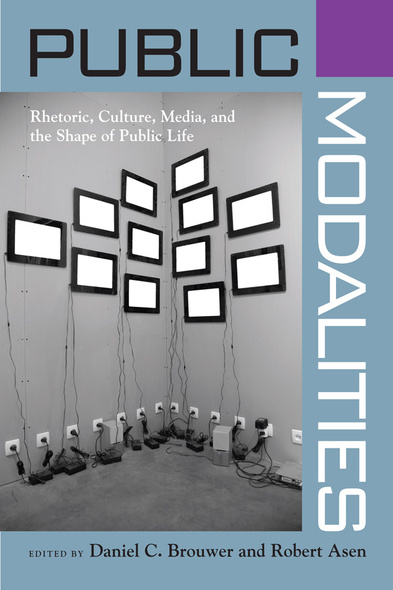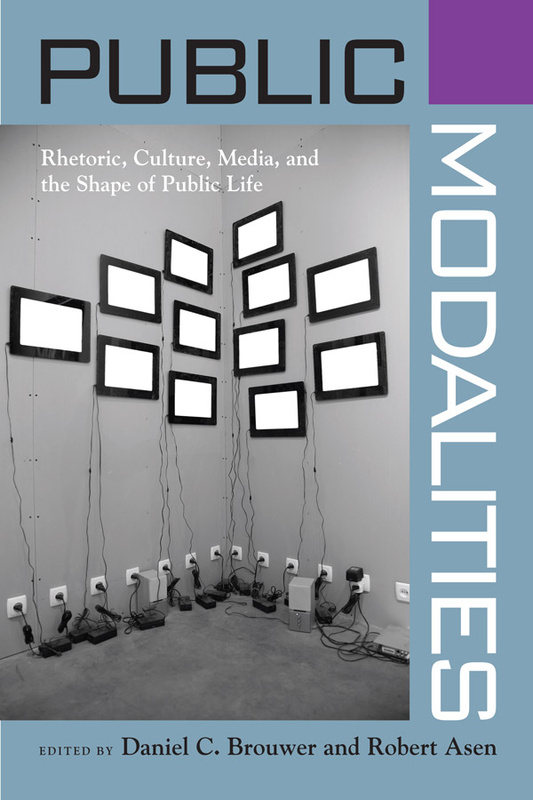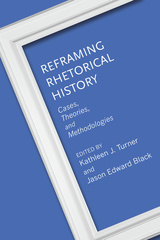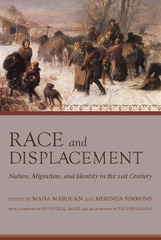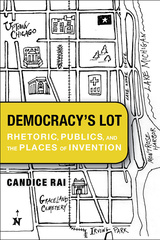Illustrates a modalities approach to the study of publics
This book explores the ways that scholars, journalists, politicians, and citizens conceive of “the public” or “public life,” and how those entities are defined and invented. For decades, scholars have used the metaphors of spheres, systems, webs, or networks to talk about, describe, and map various practices. This volume proposes a new metaphor—modalities—to suggest that publics are forever in flux, and much more fluid and dynamic than the static models of systems or spheres would indicate—especially in the digital age, where various publics rapidly evolve and dissipate.
Contributors to the volume—employing approaches from the fields of communication studies, English, sociology, psychology, and history—explore a broad range of texts and artifacts that give rise to publics, and discuss what they reveal about conceptualizations of social space. By focusing on process in public engagement, these scholars highlight questions of how people advance their interests and identities, and how they adapt to situational constraints.
Bringing together scholars in rhetorical, cultural, and media studies, this collection of new case studies illustrates a modalities approach to the study of publics. These case studies explore the implications of different ways of forming publics, including alternative means of expression (protests, culture jamming); the intersection of politics and consumerism (how people express their identities and interests through their consumer behavior); and online engagement (blogs as increasingly important public fora). In doing so, they raise important questions of access, community, and political efficacy
This book explores the ways that scholars, journalists, politicians, and citizens conceive of “the public” or “public life,” and how those entities are defined and invented. For decades, scholars have used the metaphors of spheres, systems, webs, or networks to talk about, describe, and map various practices. This volume proposes a new metaphor—modalities—to suggest that publics are forever in flux, and much more fluid and dynamic than the static models of systems or spheres would indicate—especially in the digital age, where various publics rapidly evolve and dissipate.
Contributors to the volume—employing approaches from the fields of communication studies, English, sociology, psychology, and history—explore a broad range of texts and artifacts that give rise to publics, and discuss what they reveal about conceptualizations of social space. By focusing on process in public engagement, these scholars highlight questions of how people advance their interests and identities, and how they adapt to situational constraints.
Bringing together scholars in rhetorical, cultural, and media studies, this collection of new case studies illustrates a modalities approach to the study of publics. These case studies explore the implications of different ways of forming publics, including alternative means of expression (protests, culture jamming); the intersection of politics and consumerism (how people express their identities and interests through their consumer behavior); and online engagement (blogs as increasingly important public fora). In doing so, they raise important questions of access, community, and political efficacy
The quality of the scholarship in this book is terrific. . . .[It] has the sort of unified vision a good scholarly volume requires, much like Brouwer and Asen’s earlier counterpublics volume, which, to my mind, has become a classic in rhetorical studies.’
—James Arnt Aune, author of Rhetoric and Marxism and Selling the Free Market: The Rhetoric of Economic Correctness
This book features the work of some genuinely creative and brilliant scholars. . . [It] will indeed make a significant contribution to the field. . . . There is no other work like [it] available to those of us who think, write, and teach about publics and their manifestations in society today.’
—Dana L. Cloud, author of Control and Consolation in American Politics and Culture: Rhetorics of Therapy
Daniel C. Brouwer is Associate Professor of Human Communication at Arizona State University and coeditor of Counterpublics and the State.
Robert Asen is Associate Professor in Communication Arts at the University of Wisconsin–Madison, coeditor of Counterpublics and the State, and author of Visions of Poverty: Welfare Policy and Political Imagination.

